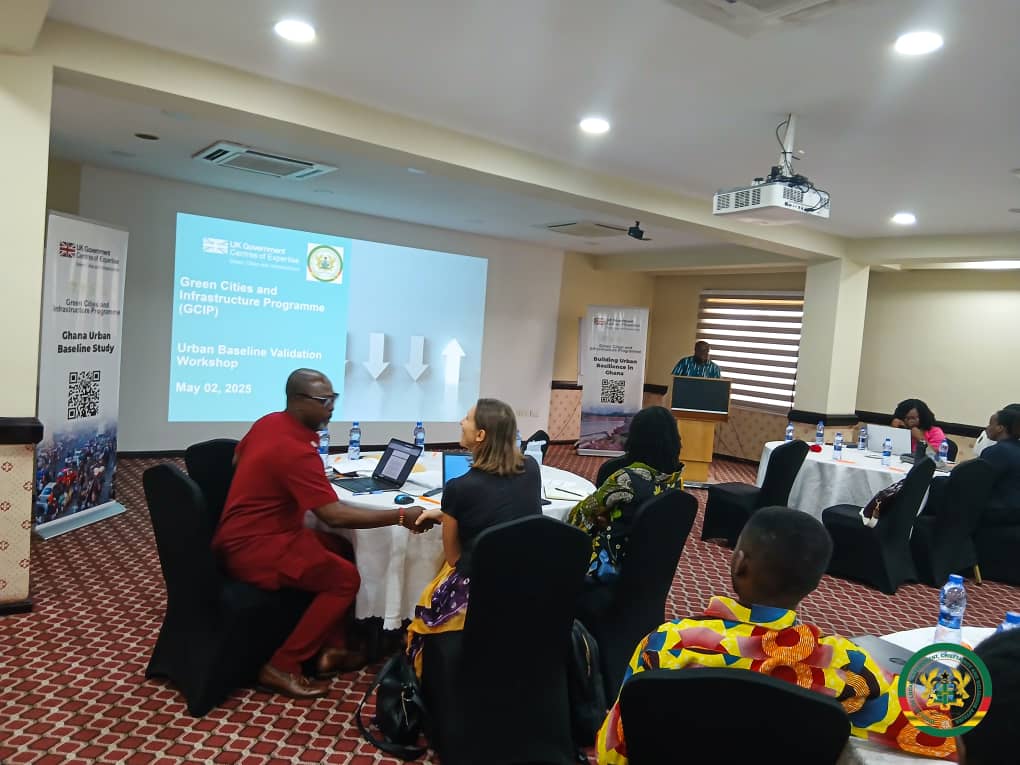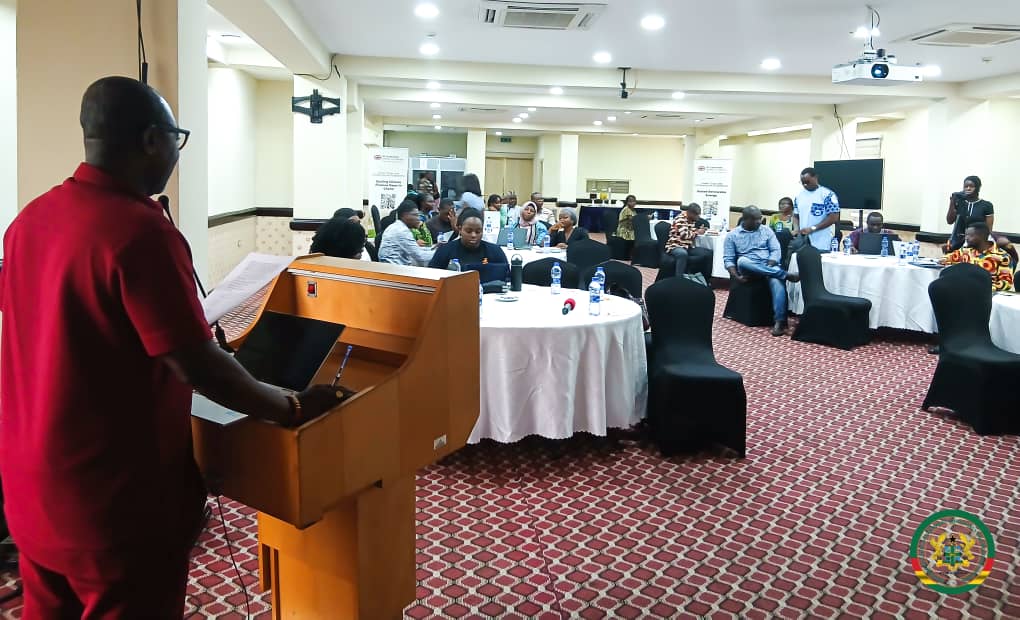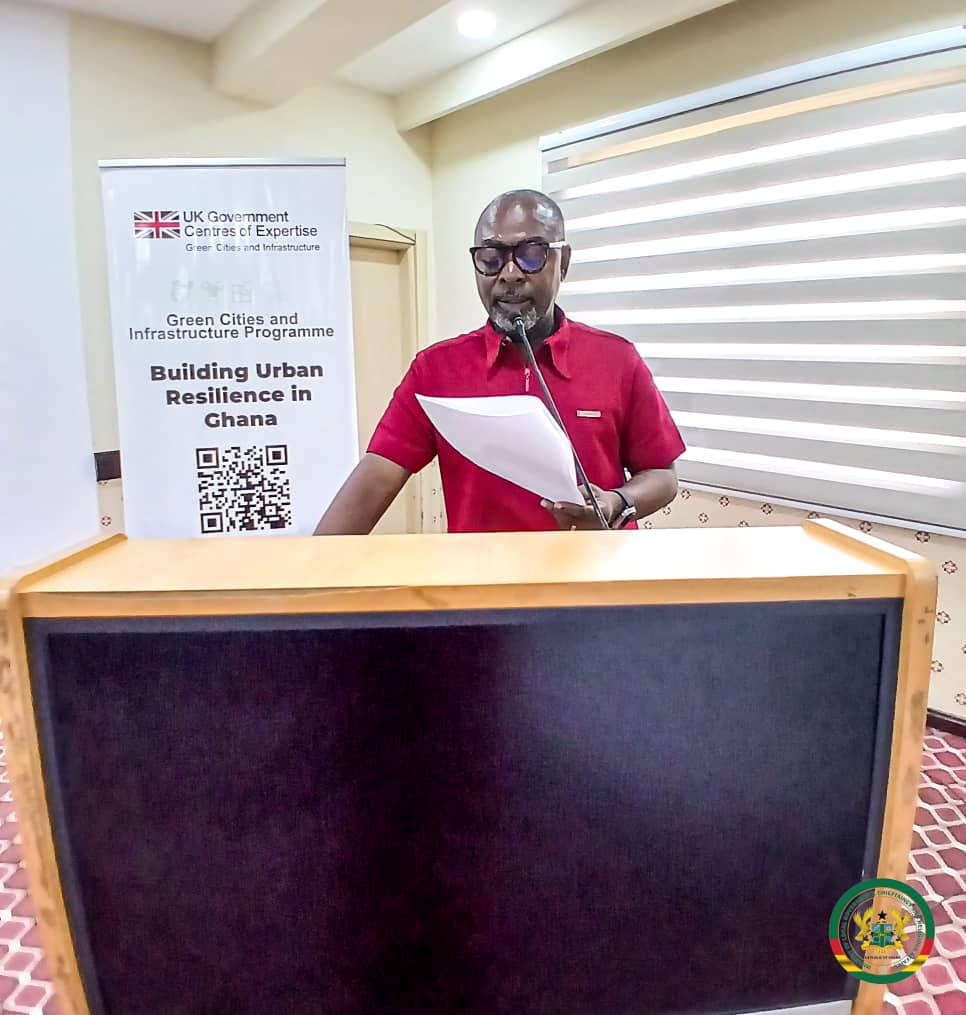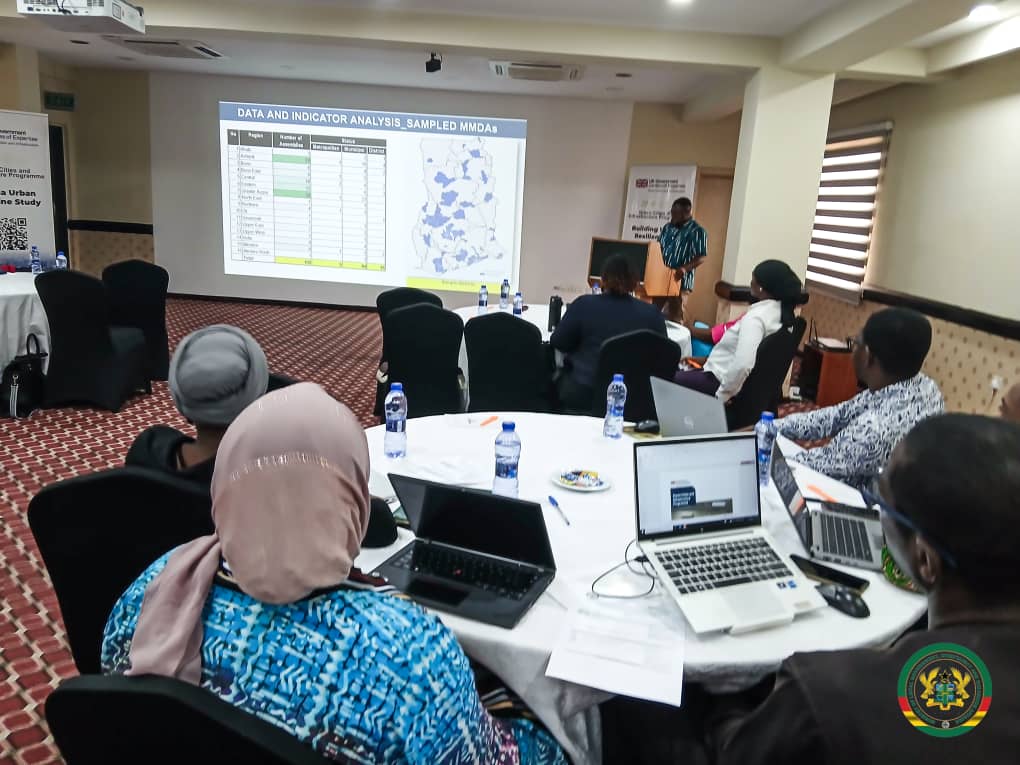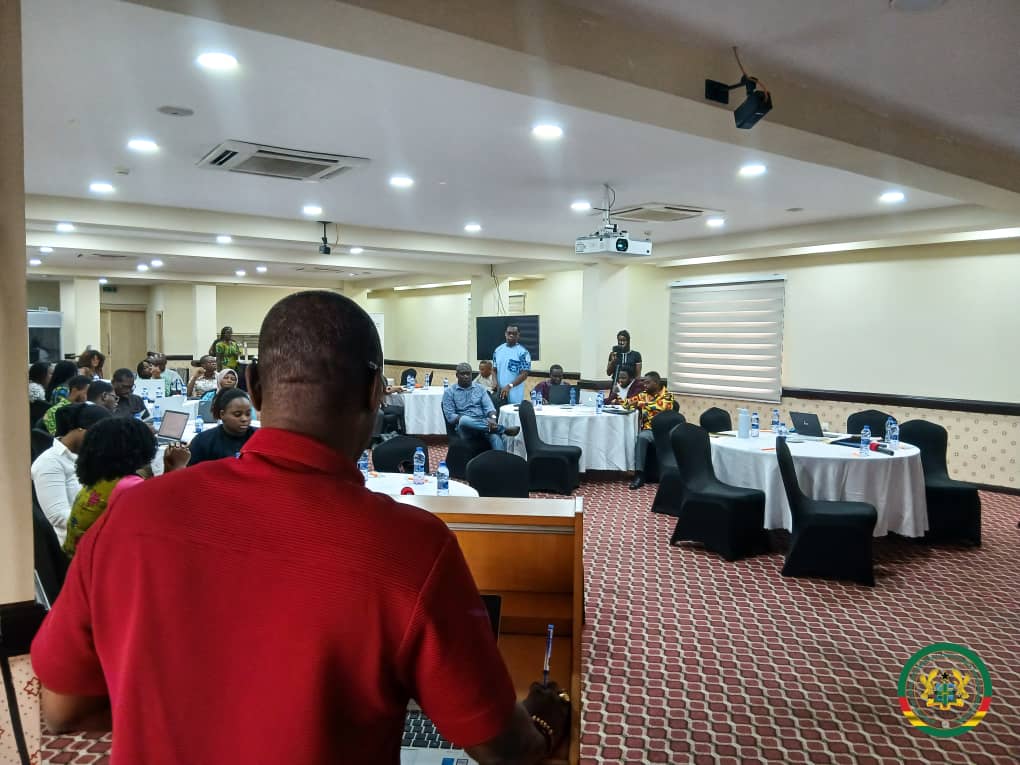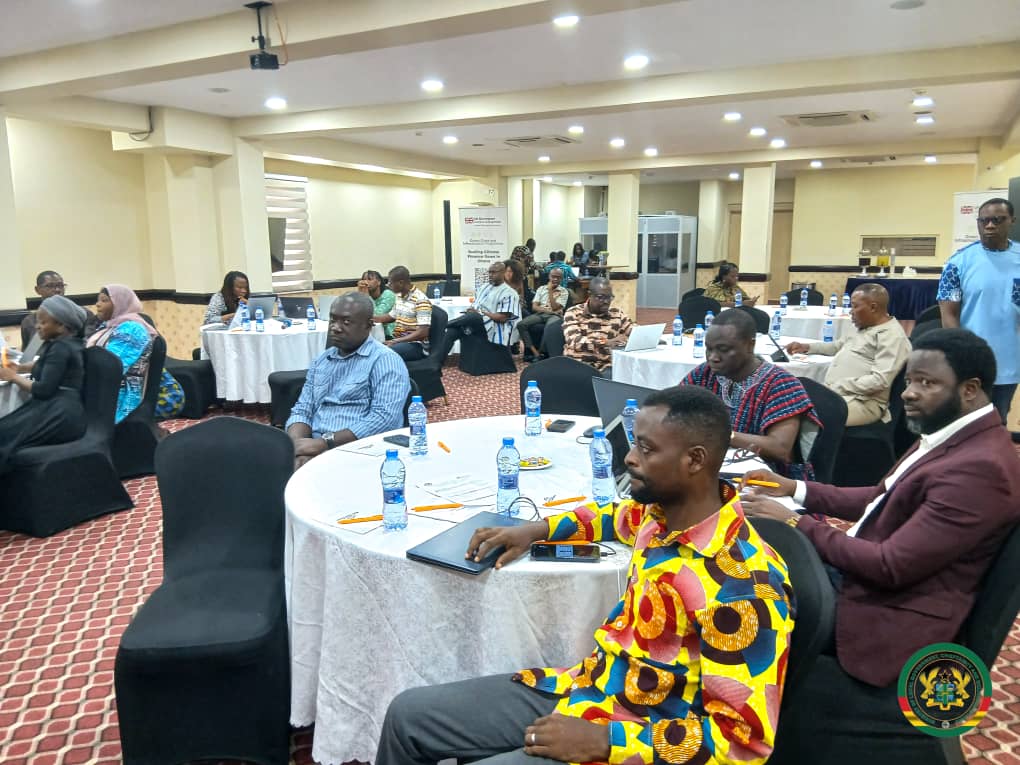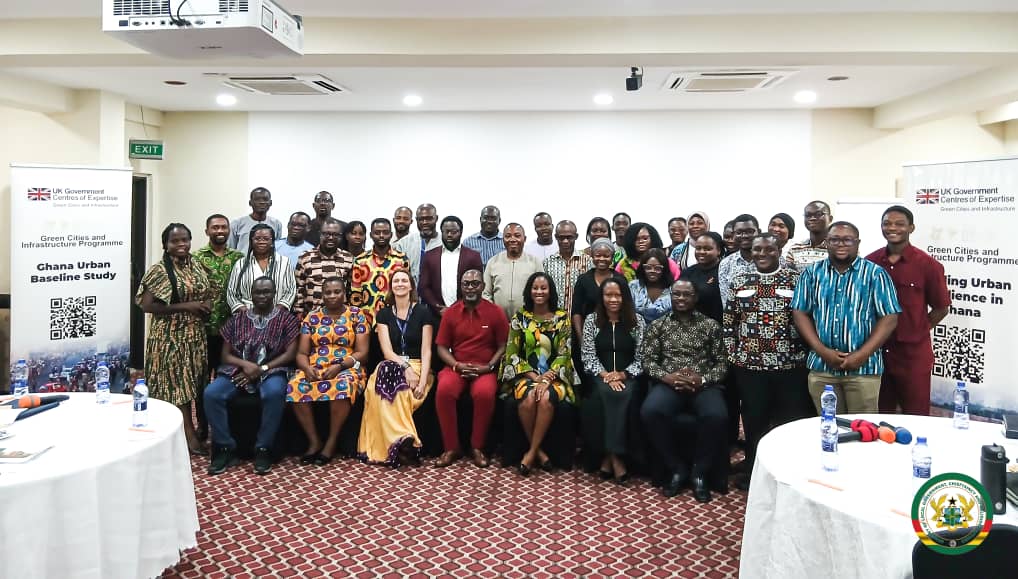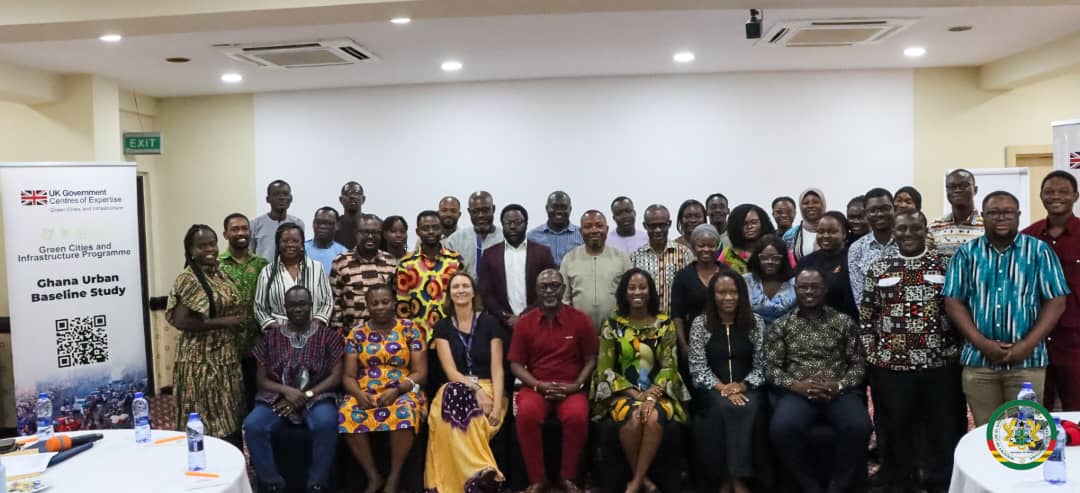A stakeholder workshop to review the Draft Urban Baseline Report under the Green Cities and Infrastructure Programme (GCIP) was held on Friday, May 2, 2025, in Accra, marking a significant step toward data-informed urban development in Ghana.
The session, organised by the Ministry of Local Government, Chieftaincy and Religious Affairs in partnership with the UK Government’s Foreign, Commonwealth and Development Office (FCDO), forms part of efforts to strengthen the revised National Urban Policy (2025–2034). It brought together representatives from government agencies, Metropolitan and Municipal District Assemblies (MMDAs), technical experts, and development partners to assess the findings of the draft report and provide feedback ahead of its finalisation.
Developed under Workstream 3A of the GCIP, the Urban Baseline Report consolidates critical data and performance indicators across 108 Assemblies and national institutions. It offers a snapshot of Ghana’s urban landscape, with indicators covering water and sanitation, waste management, urban roads, stormwater drainage, housing, and climate resilience. Of the 164 draft indicators identified, data was available for 88; highlighting both progress and gaps that need to be addressed for effective urban policy planning.
Speaking on behalf of the Chief Director of the Ministry, Mr. Amin Abdul-Rahaman, the Director for Local Governance and Decentralisation, Pln. Samuel Seth Passah, described the Report as essential to building more inclusive and resilient cities. “The Urban Baseline Report is not just a technical deliverable. It is the foundation for building resilient, inclusive, and future-ready cities,” he said.
Participants, including representatives from the Ghana Statistical Service, the Land Use and Spatial Planning Authority, MESTI, the EU Delegation, GIZ, and others, reviewed the report’s methodology, indicators, and emerging insights. Technical support for the baseline was provided by PSS Urbania Consult.
The GCIP, supported by the UK FCDO, seeks to enhance sustainable urbanisation in Ghana by supporting data generation, institutional strengthening, and monitoring frameworks aligned to national priorities. The Urban Baseline Report will inform a comprehensive Monitoring, Evaluation and Learning (MEL) Framework and the design of an Urban Observatory to track urban development outcomes over time.
With validation inputs now gathered, the finalisation of the report and next steps, including institutional capacity assessment and MEL system development are expected to strengthen Ghana’s ability to implement its urban policy and deliver targeted interventions across cities and municipalities.
Source: Darling Maame Efua Cann/ Sandra Owusu Asamoah/ Melody Hini-Amoako (Public Relations Unit MLGCRA)

